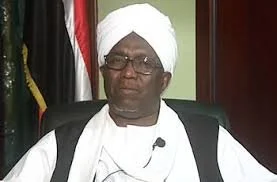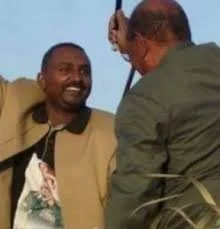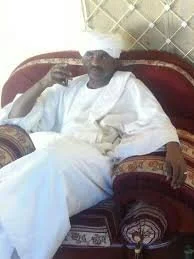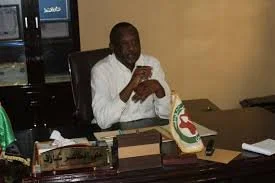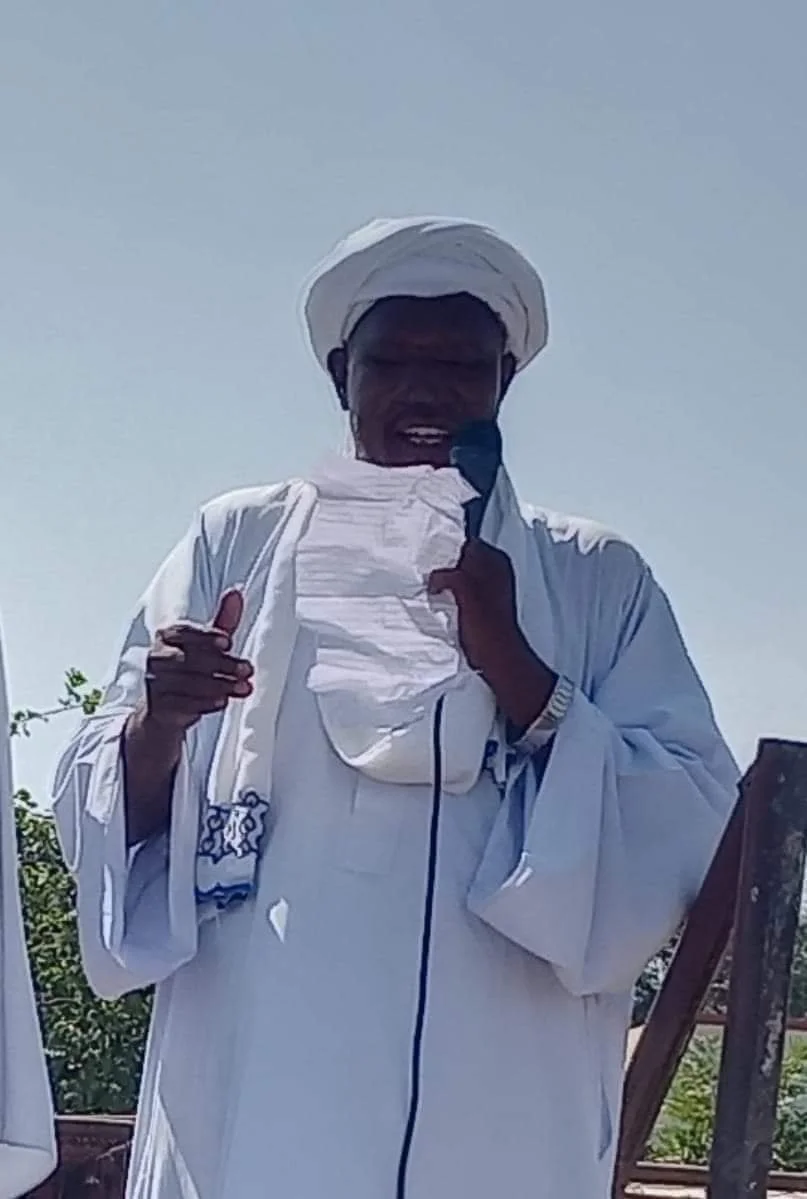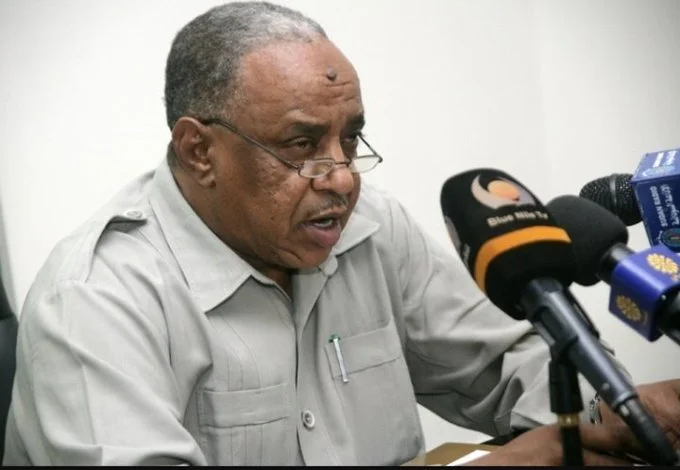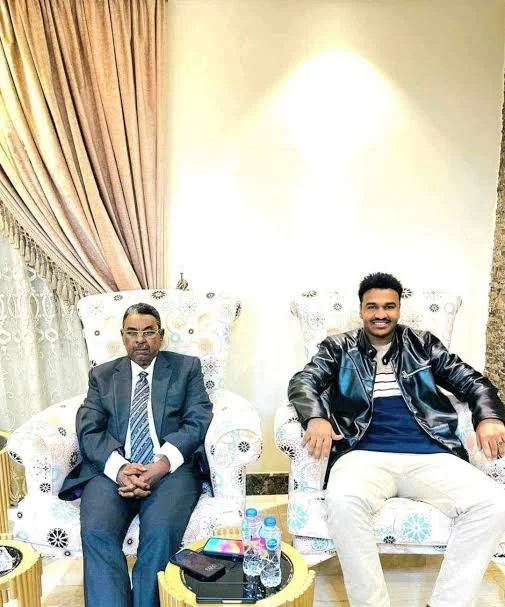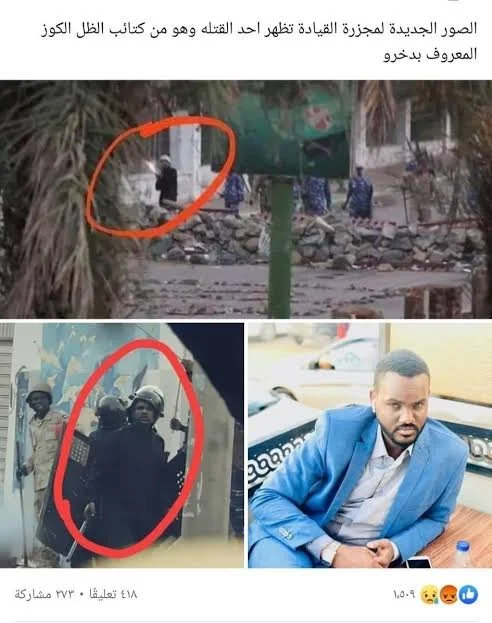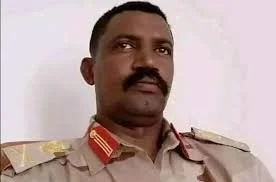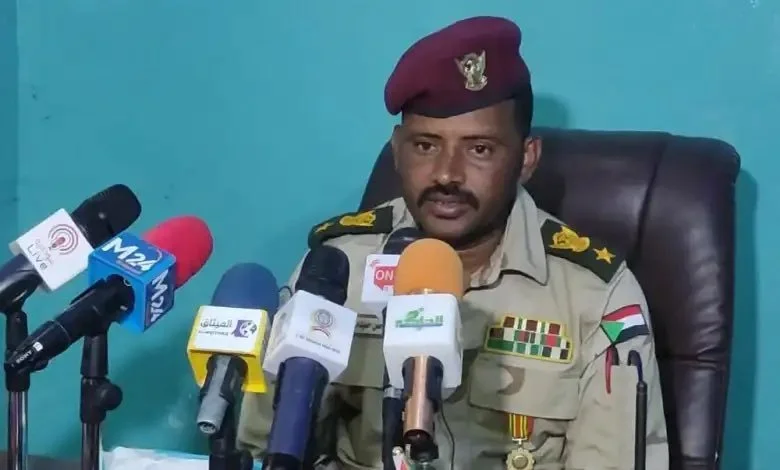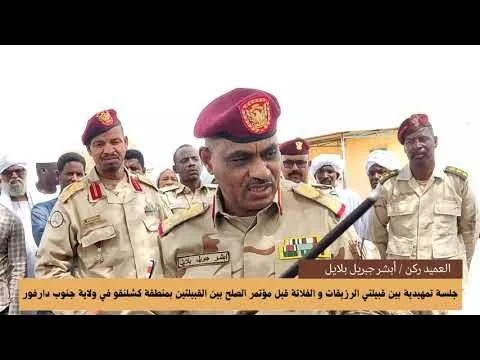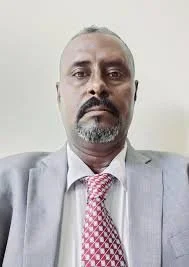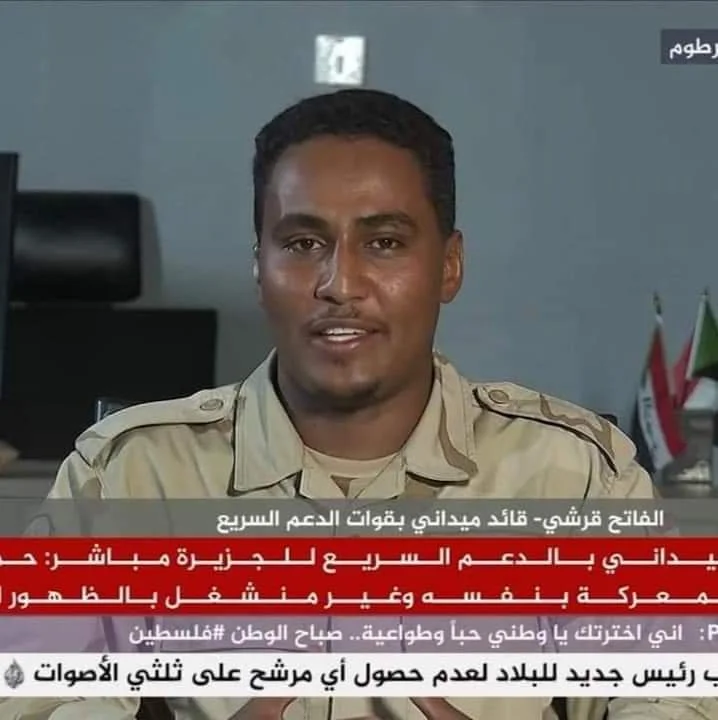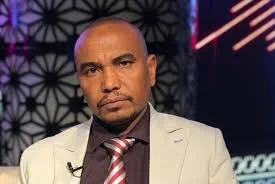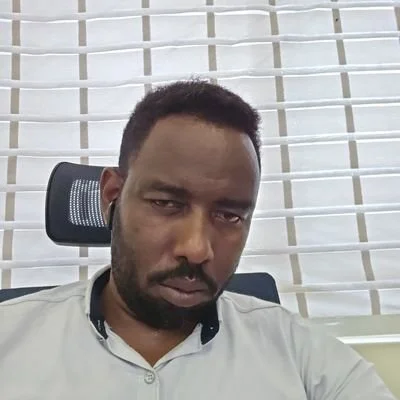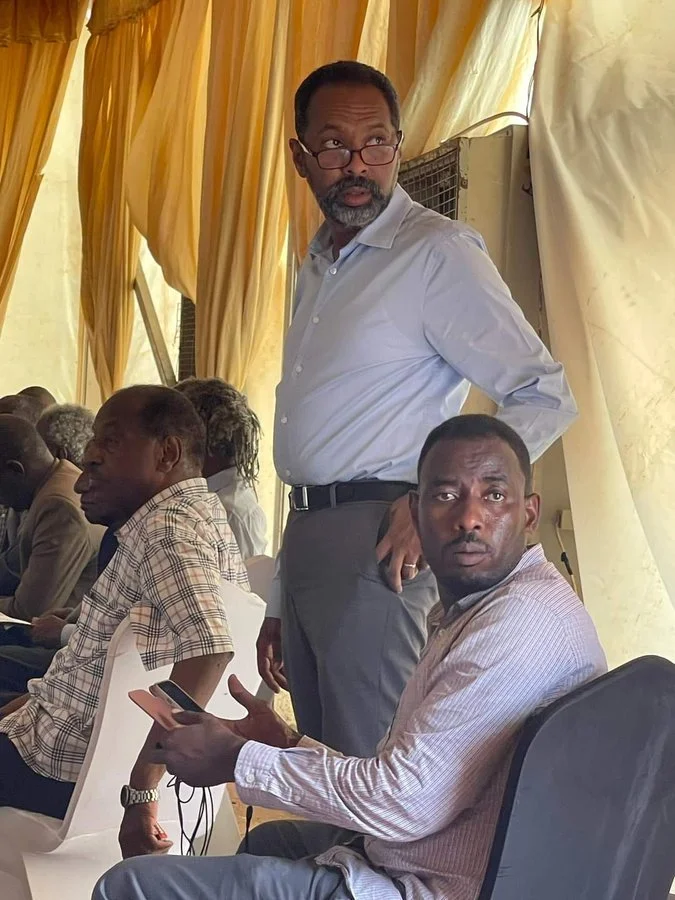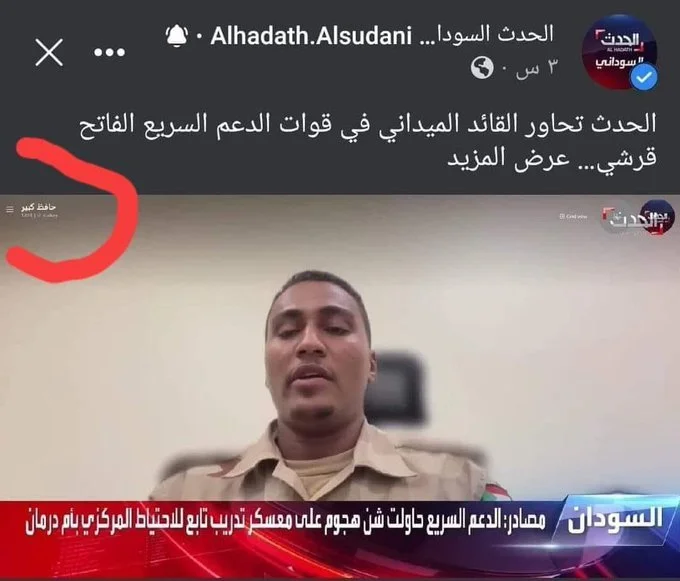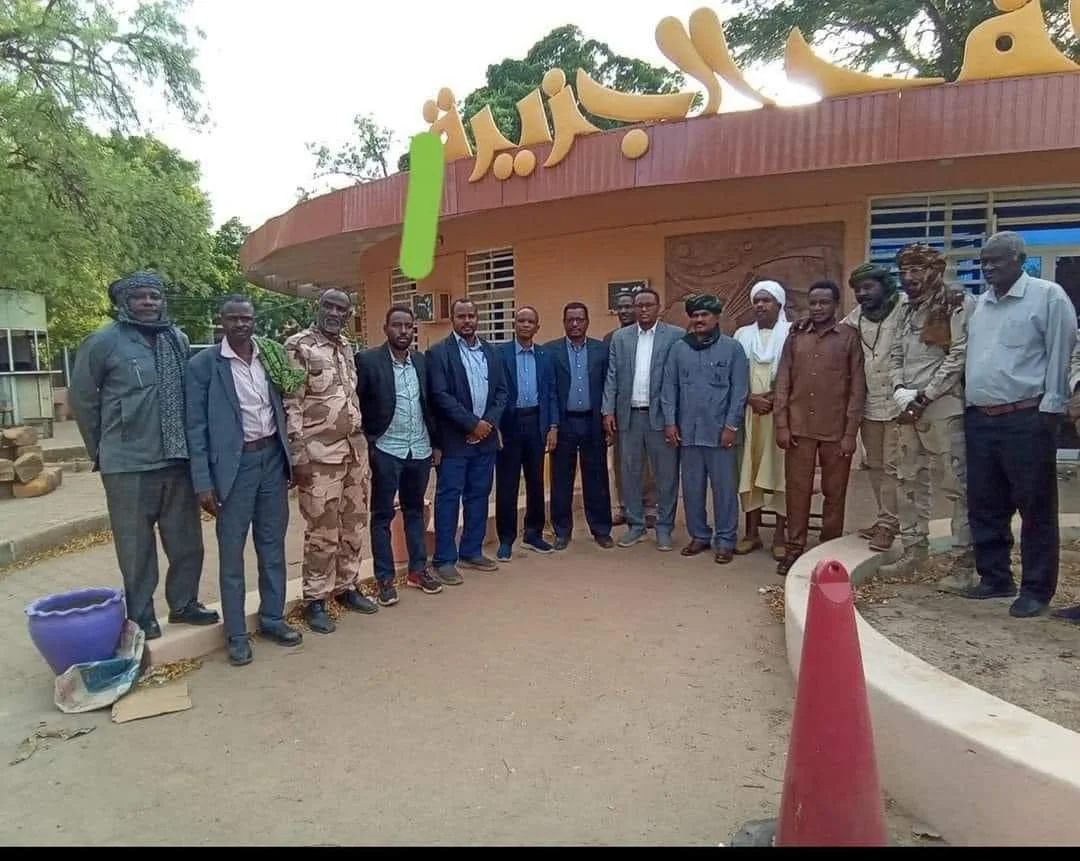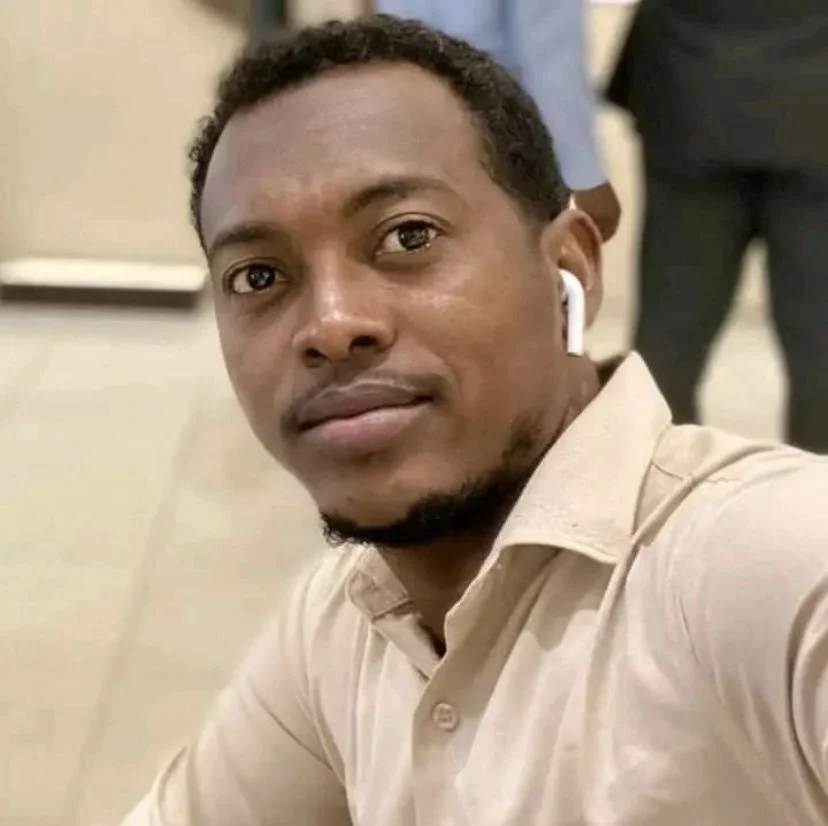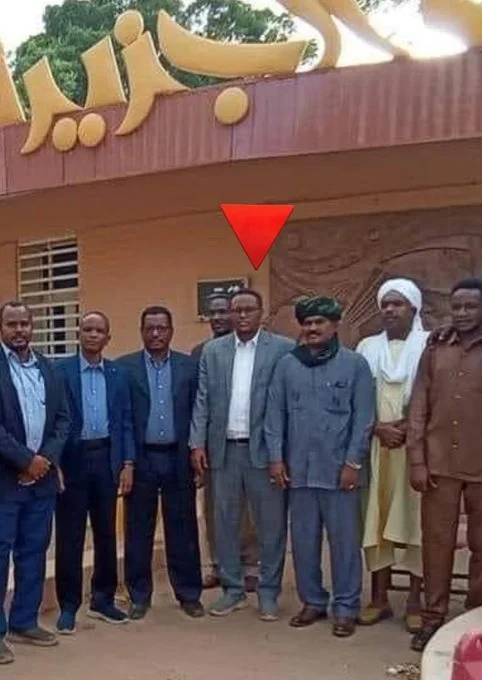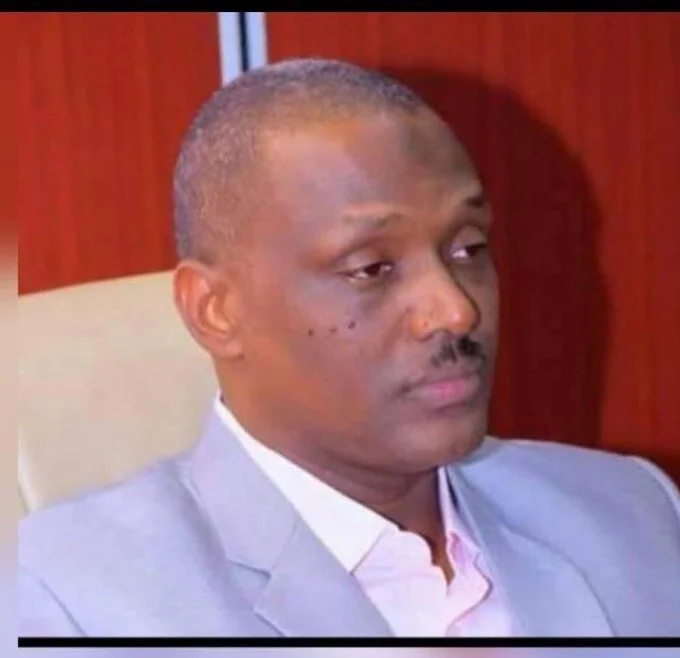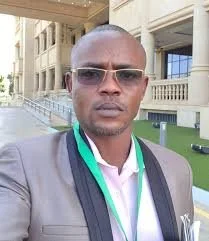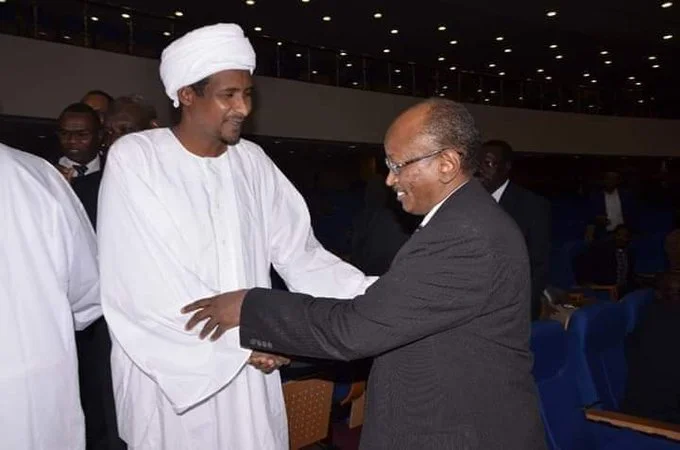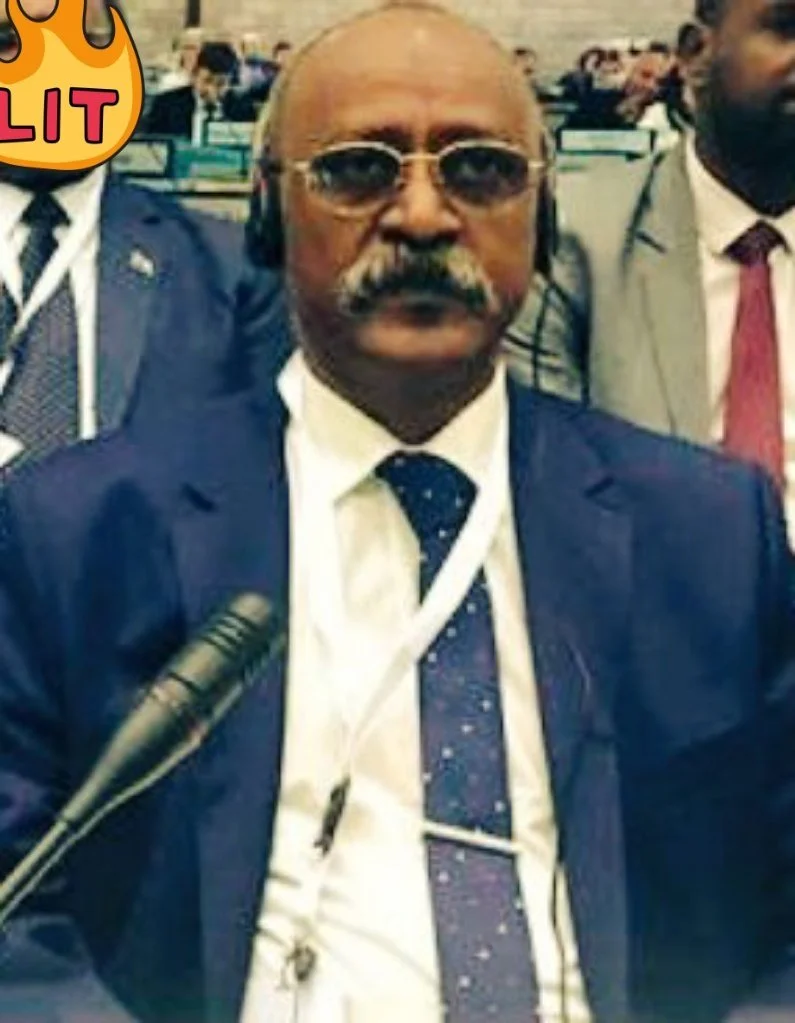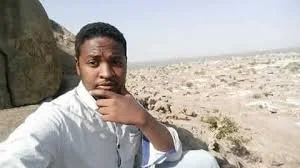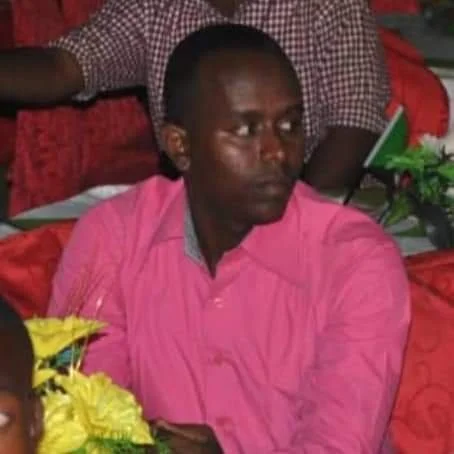Janjakezan: a profile of Islamists in the Rapid Support Forces (RSF)
Introduction
Janjakezan is a portmanteau of Janjaweed – the nomadic Arab militias that were formalised into the Rapid Support Forces (RSF) and the Kezan – a colloquial Sudanese term describing members of the Islamist regime that ruled Sudan from 1989 to 2019.
While the RSF militia claims that its primary goal is to establish democracy, the militia has “become a source of terror among many Sudanese, who have suffered from killing, displacement, theft, and rape,” notes analyst Areej Elhag.
As part of the militia’s purported war for democracy, it claims that it is fighting against the Kezan or Filool – terms used to describe the remnants of the Islamist regime led by ex-president Omar al-Bashir. By branding its attempt to seize power in Sudan as a war on the Kezan, the militia is able to achieve three key objectives.
Firstly, the RSF is able to morally justify the collective punishment of civilians as part of the militia’s war against the Islamists. For example, an RSF massacre in June 2024 that killed at least 150 civilians in Al-Jazira state that has been described as a genocide was legitimised by the militia through claims that it was targeting Islamists. Another example from December 2023 was RSF militants brandishing wads of cash belonging to civilians looted from a bank and claiming “this is the Kezan’s money”.
Secondly, the RSF is able to obtain domestic political legitimisation by claiming that it is at war with the Kezan. In March 2023, under a month before the war began, four anonymous Forces of Freedom and Change (FFC) leaders told Reuters, that RSF commander Himedti shares their civilian government goals and opposition to the Kezan. Amid increased accusations that the FFC is the political wing of the RSF, FFC leader Asmaa Mohamed Taha openly called for the support of the RSF, positioning the militia as a necessary tool for the “priority” to eliminate the Islamic Movement.
Thirdly, and most crucially, by branding its war as one against Islamists, the RSF is able to obtain international legitimacy – particularly from a powerful and wealthy Gulf state whose support for the militia has a significant impact on battlefield dynamics. Both the New York Times and the Wall Street Journal have covered on the UAE’s support for the RSF, which have been described as “credible” reports by an independent panel of UN experts. As reported by Africa Confidential in July 2024, diplomats say that the UAE’s support for the RSF is based on the Emirates’ global war on Islamism, with Sudan’s army suspected to be under the influence of Islamists.
Indeed, global media coverage and analysis of Sudan’s war has focused on the presence of Islamists in the army. However, there is a gap in research and coverage of Kezan in a militia that claims it is at war with. This is why Sudan In The News gathered information from publicly accessible sources and individuals familiar with both the RSF and Sudan’s Islamic Movement to profile at least 30 Kezan in the RSF’s ranks.
Glossary of terms
While those familiar with Sudanese politics are likely to be aware of terms and acronyms used in this article, there is a likelihood that some may not be understood. Therefore, this glossary of terms provides definitions and context in order to make the article more understandable.
Kezan: This is a Sudanese colloquial term used to describe members or supporters of ex-president Omar al-Bashir’s Islamist regime, although it can be expanded to include Islamists generally. It is the plural form of the singular noun Koz - a type of metal mug used to drink water. The story behind the term is that the ideological figurehead of the Islamist regime - Hassan Al-Turabi - described Islam as a sea, with the regime being the kezan through which the Sudanese people would consume the religion.
Janjaweed: The Janjaweed are Arab nomad militias who perpetrated atrocities against the Darfur region’s indigenous non-Arab population.
RSF: The Rapid Support Forces militia was formally founded in 2013 and grew out of the Janjaweed militias. It initially operated under the Sudanese government, but rebelled in April 2023 claiming that it is at war with the Kezan.
SIM: The Sudanese Islamic Movement was founded in the 1940s, serving as an umbrella body for Islamist groups.
NIF: The National Islamic Front was an Islamist political organisation founded in 1976. Through its dominance of Islamic banking, it created relationships with the business community. Its growing economic and political weight enabled NIF to influence the government, civil service and the army. Led by the late Hassan al-Turabi, it supported the 1989 military coup led by army colonel Omar Al-Bashir. NIF would subsequently rule Sudan, overseeing the so-called ‘Inqaz (Salvation) Revolution’ – a radical Islamist transformation of the Sudanese state.
NCP: The National Congress Party was formed in 1998 by President Al-Bashir to be the predecessor to the NIF, and the only legally recognised party in Sudan. It ruled Sudan until April 2019.
PCP: The Popular Congress Party was formed in 1999 by Hassan al-Turabi - the brain behind the Inqaz project – after Al-Bashir expelled him from the NCP amid a power struggle. Al-Turabi’s loyalists flocked to the PCP, which draws most of its support from western Sudanese Islamists.
PDF: The Popular Defence Forces is an Islamist militia formed in 1989 that waged jihad in southern Sudan. It absorbed tribal militias from the RSF’s base of western Sudanese nomadic Arabs: the Misseriya, Rizeigat and Hawazma.
NISS: Until 2019, the National Intelligence and Security Service was the powerful intelligence service of Sudan’s state, possessing a wide-ranging mandate that cut across intelligence, military and law enforcement spheres. NISS initially operated the RSF when the latter was formed in 2013. After Al-Bashir was ousted in April 2019, NISS was restructured into becoming the General Intelligence Service with its mandate reduced to intelligence.
Al-Mahdiya: Al-Mahdiya, or the Mahdist State, ruled Sudan from 1885 to 1899 under the leadership of Abdullahi Al-Ta’aishi – an Arab from Darfur. The majority of both the RSF and the Mahdist army are derived from tribes within the confederation of nomadic Arabs of western Sudan.
FFC: The Forces of Freedom and Change are a coalition of civilian political parties, rebel groups and civil society organisations formed in 2019 to oppose the NCP regime. As noted in the introduction, the FFC faces accusations that it is the political wing of the RSF.
Categorisation
The Janjakezan being profiled have been split into categories. It is highly likely that there are more Kezan in the RSF’s ranks but we were unable to verify information about other names provided. Nonetheless, this list may be added to in the future.
Former NCP government officials
1. Hassabo Abdelrahman
Originally from South Darfur, Hassabo Abdelrahman is linked to the RSF, as reflected by Africa Intelligence reporting that he is earmarked to be appointed the governor of Darfur should the region fall to the militia. While the militia deny that he is an advisor, the Islamic Movement expelled him in April 2024 for joining the RSF.
Hassabo was an influential figure in the Sudanese Islamic Movement (SIM) from when he was a student in Egypt before becoming a senior figure in ex-president Omar al-Bashir’s ruling Islamist National Congress Party. As a reward for his loyalty, he was appointed the chief of Sudan’s Humanitarian Aid Commission, before serving as Al-Bashir’s vice-president from 2013 to 2018. Even after Al-Bashir’s ouster in 2019, Hassabo remained a deputy secretary-general for the SIM until his expulsion in 2024.
Hassabo Abdelrahman
2. Mohamed Ibrahim Izzat
RSF advisor Mohamed Ibrahim Izzat was a leader in the Islamic Movement, and a government official for the NCP regime in North Darfur. Like RSF commander and deputy-commanders Himedti and Abdelrahim Dagalo, Mohammed Ibrahim Izzat hails from the Mahariya clan of the Rizeigat tribe.
His brother, Yousif Izzat, was also an RSF advisor, regularly representing the militia in the media before being terminated by Himedti after calling for the inclusion of Islamists in political dialogues. Mohamed Ibrahim Izzat held a prestigious position in the General Secretariat of the Zakat Office, where he is allegedly still receiving his salary as recently as June 2024 despite the RSF rebellion.
Mohamed Ibrahim Izzat
3. Osman Al-Sayyid Omar Abbas
Osman al-Sayyid Omar Abbas is a member of the advisory office for the RSF’s leadership. A leader in the Islamic Movement, he held key positions at the Republican Palace during Al-Bashir’s rule including the director of the engineering and administrative units. He was also appointed by Al-Bashir as coordinator for his 2020 re-election campaign.
According to Ahmed Al-Gorashi, the editor-in-chief of Al-Arabiya news, Osman played a key role in the logistical organisation of the RSF rebellion in April 2023, including: renting locations within the Sports City in Khartoum from where the first shots were fired and renting the farm from which the RSF mounted an attack on Merowe Airport.
Osman Al-Sayyid with Omar al-Bashir
4. Al-Ajib Kabor
Al-Ajib Kabor comes from a prominent Rizeigat family in East Darfur, a stronghold for the RSF militia. He is a graduate of Omdurman Islamic University, Al-Daein (East Darfur) branch. He was then an NCP leader in East Darfur, where he served as acting state governor in 2014. Currently, Kabor is an RSF advisor and the head of committee that mediates tribal conflicts in the RSF-held state of East Darfur.
Al-Ajib Kabor
5. Musa Khadaam
Musa Khadaam is an RSF advisor and spokesperson. He was a leader within the youth sector of the NCP and became a local government commissioner in Central Darfur under the NCP banner.
Khadaam graduated from Al-Ribat University before working as an X-ray technician at Zalingei Teaching Hospital in Central Darfur, a state where he reportedly played a key role in recruiting for the militia. At the start of the RSF’s rebellion, snipers were stationed in his house in Al-Bustan neighbourhood of Omdurman, which also stored weapons and ammunition.
Musa Khadaam
6. Ali Al-Tahir Shaarif
Ali Al-Tahir Shaarif is an RSF political advisor who appeared on Al-Jazeera in August 2023 to claim that reports of the RSF’s use of rape as a weapon of war are fabricated by the “remnants [of the Kezan]”. Ironically, Shaarif is himself on these remnants. He was an NCP-appointed commissioner for Al-Daein in East Darfur, where he was also the state’s deputy governor. He held those positions as recently as a month before the fall of the regime, as announced in a decree by East Darfur’s then-governor, leading NCP figure Anas Omar. In December 2018, when ex-president Al-Bashir visited East Darfur, Shaarif gave a speech praising the president.
Ali Al-Tahir Shaarif
7. Mahmoud Sosl
Mahmoud Sosl is one of the leaders of the Mahariya clan of the Rizeigat tribe of the Dagalo brothers who lead the RSF. He is described as one of the orchestrators of the RSF’s genocide in November 2023 targeting the Masalit community in the neighbourhood of Ardamata in West Darfur’s city of Al-Gineina that is estimated to have killed at least 1,300. In the same month, the RSF’s deputy commander Abdelrahim Dagalo appointed Sosl to lead a Central Darfur state management committee – a position that effectively gives Sosl that duties of a state governor after the state fell to the RSF.
In August 2023, Sosl was among the signatories of a joint statement by civilian components of Central Darfur’s Zalingei state announcing allegiance to the RSF. He was a prominent leader in the NCP during Al-Bashir’s era, holding the position of commissioner for his locality – Um Dukhun – which lies near Sudan’s border with the Central African Republic. Sosl is also accused of committing serious violations against the Fur tribe in various localities across Darfur.
Mahmoud Sosl
8. Abdallah Masar
Abdallah Masar is an RSF advisor who held powerful positions in Al-Bashir’s government including: governor for the River Nile state, information minister and presidential advisor.
In the NCP-dominated parliament, he demanded that the constitution was amended to allow the former president’s nomination for a fourth term. He was against the Darfur peace agreement signed in Abuja by the NCP government and the Sudan Liberation Army faction led by Minni Minnawi. When Al-Bashir wanted to negotiate with another Darfur rebel leader – the late Khalil Ibrahim of the Justice and Equality Movement – Masar reportedly said: “I can’t bear having two Zaghawa with us”.
In addition, Masar was a signatory of the Quresh 1 document dated 1987 which laid out the manifesto of a supremacist organisation called the Arab Gathering of Western Sudan, which inspired the RSF’s ideology. The following Quresh documents would go on to call for the extermination of Darfur’s non-Arab indigenous tribes, deny the Arab roots of northern Sudanese tribes and outline a plan for western Sudanese Arab nomad tribes to seize power by 2020.
Abdallah Masar
RSF field commanders
9. Ali Dakhro
Ali Dakhro is an RSF field leader in Khartoum responsible for east Khartoum detention centres in buildings belonging to the Arab Open University and the Operations Authority of the General Intelligence Service. He is also a pro-RSF social media influencer, although his Twitter page claims that he is residing in the Kingdom of Saudi Arabia.
In one of his RSF propaganda tweets, he announced the killing of “house slaves, falangays and ISIS remnants” in reference to the army. For reference, “falangay” is a derogatory term originally targeting Darfur’s non-Arab indigenous people that is regularly used by the RSF and their supporters. It means holders of the water vessel used to clean a person’s behind after defecation.
Moreover, Dakhro’s description of the army as “ISIS remnants” is ironic given his own militant Islamist past. Indeed, Dakhro is one of the Islamic Movement’s student sector cadres from his time at Al-Nilein University before joining the Special Forces battalion of the Popular Defence Forces (PDF) – an Islamist militia closely linked to the National Islamic Front (NIF) and its successor ruling Islamist party the NCP.
A mark of Dakhro’s militant Islamist stance is his presence in a video alongside other PDF militants singing a ‘jihadiya’ - jihadist propaganda songs promoted by the Islamist regime – entitled: “wait, coward – we’ll come to you in the bush”. Dakhro is the one that appears to have a scarf around his neck.
There is also an image of Dakhro sat with Salah Gosh, the notorious leader of the Islamist regime’s spy agency: the National Intelligence and Security (NISS).
Dakhro (right) with Gosh (left)
Furthermore, Dakhro played an active role in violently dispersing pro-revolution protests in 2019 as part of the PDF’s Shadow Brigades, with images of Dakhro firing live ammunition at protesters. Dakhro remained in the PDF even after Al-Bashir’s fall.
Dakhro firing bullets at protesters in 2019
10. Obeid Suliman Abu Shotal
Abu Shotal is an RSF field commander in Omdurman, but has now reportedly been transferred to Darfur. He was an NCP leader in the Blue Nile state and advisor to the governor of Khartoum. As a community leader of the Funj tribe, he played a key role in tribal clashes between the Funj and the Hausa in 2022.
Abu Shotal
11. Abuaqala Kaykal
Abuagla Kaykal is the RSF commander who led the militia’s takeover of Al-Jazira state in December 2023. Kaykal comes from the Shukriya tribe and hails from Al-Jazira state. He joined the RSF after forming a militia called the Sudan Shield in December 2022. Kaykal was one of the retired army officers representing the Islamic movement leading the new militia. He previously fought in the Blue Nile, and served in the PDF from 1997 and 2011.
Abuaqla Kaykal
12. Abdulrahman Al-Bishi
A Sennar native from the Rufa’a tribe, Abdelrahman Al-Bishi was an RSF Brigadier General killed on 20 July 2024. Like Kaykal, he was a former PDF fighter that commanded the militia’s troops in central Sudan. He was operational leader for the militia in Sennar state and the Blue Nile province.
Abdulrahman Al-Bishi
13. Abshir Jibril
Brigadier General Abshir Jibril Balayel was seconded to the RSF, where he reportedly remains. He was a local government commissioner and leader for the NCP in Laqawa, South Kordofan.
Abshir Jibril
14. Abdulrahman al-Khair al-Fahim
Abdulrahman Al-Khair al-Fahim hails from the Misseriya tribe and is an RSF field commander operating in al-Saliha, south of Omdurman. He attended al-Mutamar Secondary School for Boys on Al-Mawrada Street in Omdurman where he was a student official for the Islamic movement and reportedly an agent for the National Intelligence and Security Service (NISS).
At the start of the war, he gave a phone interview to Al-Jazeera who introduced him as an RSF advisor. He said the “RSF was established 130 years ago”. This comment implies that the militia is the re-embodiment of the Mahdist forces that ruled Sudan from 1885 to 1899.
The Mahdist state was based on a jihadist movement, and it has been described as the “closest historical precedent” to ISIS. Under the rule of Abdullahi Al-Ta’aishi, the “brutal” Mahdist period was known for mass displacement, hunger, killings and persecution. The majority of both the RSF and the Mahdist army are derived from tribes within the confederation of nomadic Baggara Arabs of western Sudan - including Al-Fahim’s Misseiriya tribe, the RSF leadership’s Rizeigat tribe and Al-Ta’aishi’s Ta’aishah tribe. Researcher Reem Abbas noted the similarities between the Mahdist forces and the RSF, particularly discriminatory narratives targeting Riverine Northern Sudanese.
It is also worth noting that Abdulrahman Al-Khair Al-Fahim’s father – Al-Khair Al-Fahim – was a senior Islamist in the NCP regime. Al-Fahim senior was a member of the West Kordofan legislative council and the co-chair of the Abyei Joint Oversight Committee, which was formed to administer the territory of Abyei that is disputed between Sudan and South Sudan. Al-Bashir’s regime appointed Al-Fahim senior to be the Sudanese government’s representative. Sudan Tribune described him as Misseriya tribal leader.
Al-Khair Al-Fahim
RSF spokespersons
15. Albasha Tibeq
Formerly an NCP senior official in West Kordofan, Albasha Tibeq is an RSF advisor who regularly appears on regional news stations such as Al-Jazeera as a spokesperson for the militia.
As recently as 30 June 2021, Tibeq participated in Islamist marches against the civilian component of the transitional government following the NCP’s removal from power. That date was the 32nd anniversary of the Islamist coup that brought Al-Bashir to power.
Tibeq also made misogynist and racist comments to anti-RSF activist Jamila Khalifa, where he told her: “you and your kind (northerners) sold your honour like your grandmothers sold their honour to the English”. This message conforms to a grievance narrative prominent in RSF discourses – often regurgitated by the militia’s mouthpieces such as Issa Musa Himedan – an RSF influencer based in Angers, France – which claims that northern Sudanese are traitors who collaborated with British colonialists to resist Mahdist rule.
Al-Basha Tibeq
16. Alfatih Gorashi
Alfatih Gorashi is the RSF’s official spokesperson, regularly appearing on regional TV news stations and the militia’s official social media. Hailing from East Darfur, Gorashi attended West Kordofan university where he was the NCP union’s deputy president and political secretary. He then became a deputy secretary for the NCP organisations secretariat in East Darfur, where he was an influential leader in the party’s youth sector. Before joining the RSF in 2019, he worked as an office manager for Anas Omar – a leading NCP figure appointed to be governor of East Darfur state.
Alfatih Gorashi
17. Omran Abdallah
UK-based Omran Abdallah is an RSF advisor who regularly appears on regional news stations speaking on the militia’s behalf.
During one of those media duties, Salah Khalil, a researcher at Ahram Centre for Strategic Studies, outlined Abdallah’s Islamist. Khalil said Omran was a member of the Islamic Movement who was part of the Islamist militias that waged jihad on rebels in South Sudan on the basis that they are “infidel” Christians.
Omran Abdallah
RSF Negotiators
18. Mohamed al-Mukhtar al-Nur
Mohamed al-Mukhtar is an RSF legal advisor, alongside being a member of the RSF’s delegation for the negotiations in Jeddah. He was reportedly an NCP leader with roles in the secretariat of culture and the state government of West Darfur.
Mohamed Al-Mukhtar
19. Faris al-Nur
Faris Al-Nur joined the RSF as an economic advisor and was a member of the RSF’s Jeddah negotiation delegation. He had strong business links to the NCP through his leadership of “humanitarian” organisations linked to the regime.
According to Sudanese media reports, he worked for the Ma’arij Foundation for Peace and Development. The president of this organisation was Omar al-Bashir’s brother – Mohamed Hassan Ahmed Al-Bashir.
Al-Nour also led the “Mujaddidun” organization, which was founded in April 2010, and was said to be closely linked to the leader of the ousted regime, Ali Osman Mohamed Taha. Investigative journalist Al-Ba’ashoum revealed that Mujaddidun received project funding money from NCP-linked companies and the party itself. One of Mujaddidun’s subsidiary groups called Voltrone included the niece of Omar al-Bashir and the daughter of NCP heavyweight Nafie Ali Nafie. The Islamist regime’s ex-vice president Ali Osman Mohamed Taha granted Mujadiddun luxury offices in Burri. Also linked to the organisation were Abdulrahman Al-Khidr, the NCP’s former governor of Khartoum, and radical Islamist cleric Abdulhai Yousif.
Faris Al-Nur
RSF Coordinators
20. Hafiz Kabeer
Currently a media coordinator for the RSF, Hafiz Kabeer was a former student leader for the Popular Congress Party (PCP) which emerged in 1999 from a split within the ruling NCP. As noted by Sudan historian Willow Berridge, many of the western Sudanese Islamists went into the newly formed party. Hafiz Kabeer brands himself as a journalist on this Twitter account, where he claims to be anti-war. Indeed, he was pictured at a workshop with a politician who also claims to be anti-war – Khalid Omar Yousif – an FFC leader.
Hafiz Kabeer
Hafiz Kabeer with Khalid Omar Yousif (standing)
Yet the Sudanese Twitter community was taken aback when Hafiz Kabeer’s name appeared on the top left corner of a Skype interview that RSF spokesperson Al-Fatih Gorashi had with Al-Hadath news station. The footage suggested that the interview was held through Kabeer’s personal account.
Hafiz Kabeer’s name appears on Alfatih Gorashi’s interview with Alhadath
In addition, pictures circulated social media of Kabeer posing alongside RSF militants in Wad Madani, Al-Jazeera state.
Hafiz Kabeer with RSF militants in Al-Jazeera
21. Walid Wahal
Walid Wahal is an RSF media coordinator. He was part of the Islamic Movement’s student sector, affiliated with the PCP. Born in Al-Gineina, West Darfur – Wahal attended the College of Agricultural Studies at the Sudan University of Science and Technology. Graduating in 2010, he was the secretary-general for the university’s PCP union before becoming the PCP’s coordinator to the RSF. He made a Facebook post in April 2023 where he said that there is no consolation for “disappointed” Riverine Sudanese.
Waleed Wahal
22. Huzayfah Abounuba
Huzayfah Abounuba is an RSF electronic monitoring officer formerly in the Islamic Movement’s youth sector.
Huzayfah Abounuba with RSF militants in Wad Madani, Al-Jazeera state
23. Ahmed Hassabo Abdelrahman
Ahmed Hassabo Abdelrahman, the son of Hassabo, is an RSF media / PR coordinator. Ahmed was part of the Islamic Movement’s youth sector and the Popular Defence Forces (PDF) Islamist brigades that violently dispersed anti-regime protests in 2019.
24. Mahmoud Wad Ahmed
RSF advisor Mahmoud Wad Ahmed was a prominent member of the NCP’s youth sector, holding the position of secretary in Khartoum state and president of the NCP’s National Union of Sudanese Youth until its final session before the regime fell in April 2019. In August 2023, the Sudanese Islamic Movement issued a statement saying that Mahmoud Wad Ahmed was hired by the RSF’s leadership to establish an supervise an entity called Youth for Construction and Development that aimed to attract young people to the RSF.
Mahmoud Wad Ahmed
RSF mouthpieces
25. Ibrahim Baqqal
Ibrahim Baqqal is a journalist in RSF uniform that labels himself ‘the Governor of Khartoum’. In an interview on Omdurman TV from August 2019 he proudly labelled himself a part of the Islamic Movement and the NCP. He reiterated his NCP allegiance in an article he wrote in 2022. His NCP ID card from 2017 has also appeared on social media.
Ibrahim Baqqal
26. Alrabea Abdelmonem
Alrabea Abdelmoniem is a UK-based RSF mouthpiece with affiliations to the Islamic Movement.
In this 14-minute documentary by Sudan In The News, we compiled and translated eight clips in which Alrabea incites the RSF to commit crimes including: rape, ethnic cleansing and attacking hospitals. In the second part of the documentary, we covered how Alrabea personally travelled to Darfur to address RSF militants and senior commanders, including its deputy Abdulrahim Dagalo and Abdelrahman Juma’a who is believed to behind genocide in West Darfur targeting the Masalit community. Furthermore, Alrabea played a part in the detaining of children and their exploitation for the purposes of RSF propaganda. Alrabea was subsequently arrested by UK authorities, although he continues to record livestreams inciting violence. Alrabea denied his arrest in a stream where he said he would seek “martyrdom” and go to prison for the RSF cause.
In an article published on 26 May 2022 by RSF supporter Ibrahim Baqqal, an NCP Islamist, Baqqal noted that Alrabea – who he labels “a very dear brother and friend” - belongs to the PCP. Alrabea’s connections to the Islamic Movement in Sudan also extended to Mohammed Ali Al-Jazuli, a radical Islamist who gave his allegiance to ISIS in 2014, and became its leader in Sudan . Al-Jazuli has been recorded saying that it is permissible to kill women and children, alongside advocating for the bombing of embassies and killing of US diplomats in calls for jihad. In a video (likely recorded in 2022), Alrabea stands with both Baqqal and Al-Jazouli, where the latter calls Alrabea his brother, and says that “the Islamic Movement brings us together”.
Journalist Husameldin Haidar profiled Alrabea’s Islamist links. Alrabea is a graduate of the Nile Valley University’s Faculty of Sharia and Law and he was part of the Islamic Movement’s student sector. He was allegedly among the PDF’s student battalions that committed violations against regime opponents. Alrabea then joined the Mujahideen Bridges that waged “jihad” in South Sudan under the PDF banner. Before becoming an RSF mouthpiece in 2023, Alrabea’s extremism on social media during the transitional period around 2021 and 2022 included calls for violence targeting the FFC coalition that selected the civilian component of the transitional government.
Alrabea Abdelmoniem
Intelligence
27. Abdulghaffar al-Sharif
Formerly the director of NISS’ political department, Abdulghaffar al-Sharif reportedly became RSF commander Himedti’s security advisor in 2019 tasked with establishing an RSF intelligence service to operate in parallel to the state’s agency. Al-Sharif is a Ja’ali from Shendi, a northern Sudanese tribe subjected to hostility in both the RSF and the Mahdist state discourses. However, Al-Sharif and Himedti were united by their enmity towards the former NISS chief Salah Gosh.
Abdulghaffar al-Sharif (right) shaking the hands of RSF commander Himedti
At the start of Gosh’s second stint as Sudan’s spy service chief in 2018, Al-Sharif was arrested and sentenced to prison on corruption charges. The enmity between Gosh and Al-Sharif stems back to Gosh’s first spell as Sudan’s spy chief from 2004 to 2009, when Gosh was demoted to the role of presidential advisor amid his widening rift with another powerful figure within the Islamist regime – Nafie Ali Nafie. Al-Sharif’s stock within the powerful NISS grew under its new leader – Mohamed Atta al-Maula. He also grew close to Taha Osman Al-Hussein, who was Al-Bashir’s presidential office director and played a key role in managing the RSF’s relationship with regional actors such as the UAE.
In 2012, Gosh was arrested on charges of plotting a coup against president Omar al-Bashir. It is alleged that Al-Sharif personally assaulted Gosh during the latter’s detention. However, Gosh was subsequently pardoned by the president on 2013, and eventually reinstated as NISS’ director in 2018 before embarking on a campaign of settling scores with Al-Sharif. Gosh sacked 17 of Al-Sharif’s loyalists within NISS. He also ordered Al-Sharif’s arrest, leading to the latter being sentenced by a military court to seven years in Kober prison.
By April 2019, Al-Bashir was ousted with Salah Gosh playing an integral role. Gosh and his NISS were themselves side-lined as Himedti became the deputy head of the ruling transitional sovereign council following Al-Bashir’s ouster. The contempt between Gosh and Himedti was mutual – Gosh resented Himedti’s ambitions, while Himedti distrusted Gosh, who then fled to Egypt. Himedti sought to strengthen the RSF at the expense of NISS, particularly by folding the latter’s operational arm into the militia.
Al-Sharif was then released from prison by direct order of Himedti after Al-Bashir’s ouster. Al-Sharif was reported to be Himedti’s advisor tasked with establishing the RSF’s intelligence department to act in parallel to the weakened NISS as far back as July 2019. In November 2019, Al-Rakoba reported that Al-Sharif was in the process of creating the aforementioned department.
Al-Sharif is one of the most important NISS agents poached by Himedti. As the ex-director of its political department, he brought access to security archives, alongside experience and knowledge of security services, institutions and organisational bodies. It has been alleged that Al-Sharif’s expertise was critical in dictating political arrangements in the RSF’s favour during the transitional period, with the militia keen on weakening the Sudanese Professionals Association (SPA) and forcing its restructuring.
It has been reported that the information collected by Al-Sharif has been used to blackmail civilian entities, playing a crucial role in infiltrating professional unions, parties and activists who would then adopt the RSF as a political partner following the 3 June 2019 Khartoum sit-in massacre.
28. Awad al-Karim Al-Gorashi
One of the RSF’s senior advisors is Awad al-Karim Gorashi, a former NISS deputy director who supervised the infamous ghost houses where detainees were tortured. In November 2019, in his capacity as the head of the Transitional Sovereign Council, the army’s commander-in-chief Abdulfattah Al-Burhan dismissed Al-Gorashi and retired him. Al-Gorashi is considered close to RSF commander Himedti, having collaborated closely in Darfur. At the time, Himedti was Al-Burhan’s Sovereign Council deputy and Al-Gorashi’s sacking was considered reflective of their differences over the management of the intelligence service.
Awad al-Karim Gorashi
29. Mohamed Mutasim Badawi
First Lieutenant in the RSF’s intelligence responsible for army detainees. As a resident of al-Waha in Omdurman, he was a leader within the NCP’s youth sector responsible for organising marches and Ramadan gatherings. He worked for a year for the Humanitarian Aid Commission as an RSF representative.
Mohamed Mutasim Al-Badawi
30. Mohamed Taher Adaroub
Originally from Kassala in east Sudan, Mohammed Taher – known as Adarob – was a supply officer for the PDF, belonging to the Junud al-Haq (Soldiers of Truth) brigade. As part of the militia’s intelligence sector, he commanded forces in Khartoum state (Al-Bagair, East Nile and Omdurman).
Mohamed Taher Adaroub
31. Khobab Hadi Issa
Specialising in mechanic engineering, Khobab Hadi Issa works as a Maintenance Workshop Officer for the RSF in Khartoum. He was part of the Islamic Movement’s student sector before becoming a NISS officer and reportedly still uses his intelligence service card.
Khobab Hadi Issa
